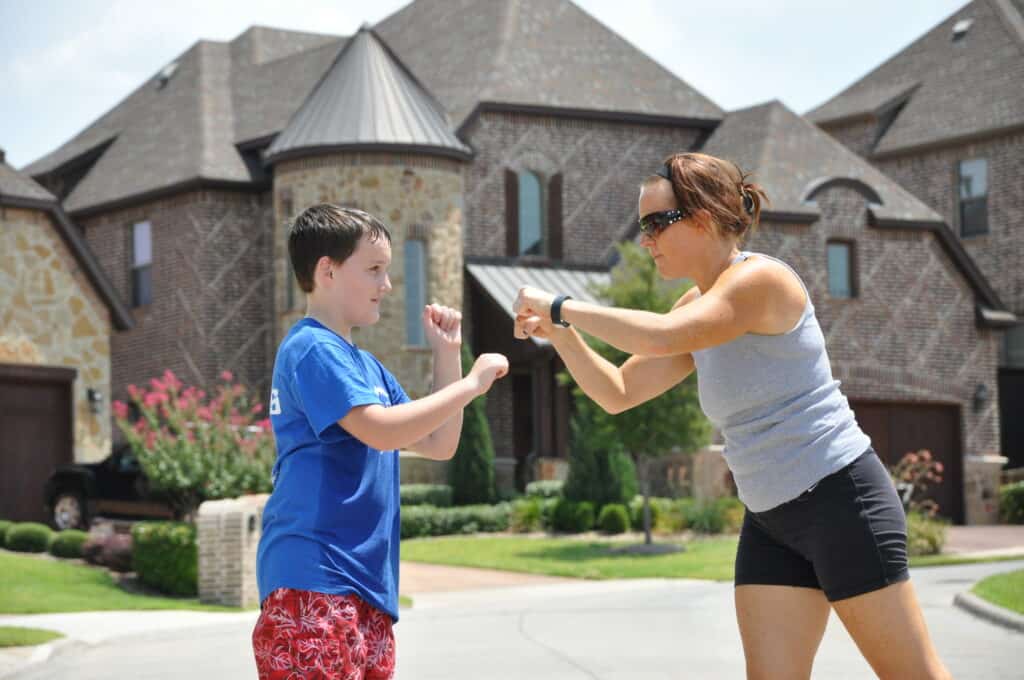Role Model Emotional Self-Control
How well do you role model emotional self-control?
This is a make or break life lesson. All kids need to learn the skill of emotional self-control. And guess who their first role models are of managing feelings?
Yes, YOU! You the parent are the first role models your children watch as you navigate your negative feelings.
What do you look like when you are angry? Sad? Stressed? Anxious?
Negative feelings are normal human feelings. Let's ask a few questions to review what you do:
What do your kids see and hear when you experience these types of emotions?
What do they see in your behavior? Do you yell? Do you demean others? Do you cuss?
Maybe you are the type who avoids and runs behind a slammed door?
We know there are many who overindulge in food or drink to mange negative feelings and situations, is this you?
Do you shop? Gamble? Pop a pill? Or do you give the family the silent treatment and not talk for day or two?
And, here are some other considerations that are not good. In many situations, it is unwise to just tell your child what to do when you are frustrated or he/she is angry. Equally unwise is the parent who swoops in and rescues or protects the child from negative feelings.
While difficult at times, I admit, the wise choice is to let your kids figure things out when they are going through a tough patch with school or sport. And consider enough self-control to ask them questions assisting them to solve their own problems rather than telling them how to fix it. I know simply fixing it yourself is easier and saves time, but in the long run, it leads to young adults still turning to you for living accommodations and solving things. That's money being tossed in your fire place don't ya know.
Role model emotional self control no matter what
It takes self-control when anger or stress is high to sit face to face, eyeball to eyeball and LISTEN and VALIDATE your child and teach him/her to do that with you to gain understanding of what is important. Agreement is not necessary here. Simply ACKNOWLEDGE feelings and display calm confidence in discussing difficult things. After discussion of the problem or issue, then move on to problem solving.
Here's the deal, you cannot not fully solve an issue without this healthy discussion. And, in discussion, again, you do not need agreement. You do not need to fix it before fully gaining your child's input as to the problems and difficulties important to your child. When you go to solve an issue, then you need agreement.
Role modeling a constructive method of communication involves listening, discussing thoroughly the issue, problem-solving all while exercising self-control. Only a parent in control is respected when problems and challenges occur. Think about it, first responders are not called first reactors. For a reason, these folks stay calm and in control when a crisis happens. So aim to be the first responder in your home to teach children what to do with negative feelings.
Furthermore, is important kids see you manage these negative feelings in an appropriate manner. Narrate with self-control what you feel in a given situation and explain what and why you are choosing to do what you do. Have your own self-control routine if necessary before you discipline or punish a child.
There are times when I told my kids, 'I going to my bedroom to think through this and I'll be back to let you know what I decide to do for discipline.' Honestly, a good workout often was required then I set a designated time to talk about the mishap.
Discipline calm, confident, and in self-control
Never punish in anger. Yelling is a sign of weakness. Teach instead. That IS the self-control they need to see you role model. You demonstrate emotional control when you dish out consequences for them without screaming or yelling in anger. Facing problems calmly and with confidence using your ability to reason proves more effective.
Hear me, however, I am not saying deny your anger if your teenager blatantly lies. I am simply asking you to communicate and discipline in control of yourself.
And, when kids struggle, rather than fix it for them, guide them towards figuring it out. Ask, 'what do you think are some good options here?' 'What do you need to ask the coach?'
The responsibility belongs to you to show self-control. Responsibility is on you to role model and teach your children to appropriately manage their emotions and discuss conflict in a respectful manner. Trust me, life with them during the teenage years will go more smoothly when they learn this early in their development.

 Parenting athletes is hard work. There's an entirely new and different set of dynamics at work. You have to be mom, dad, or mom and dad, coach, counselor, EMT, equipment manager, engineer, and seamstress all before dinner! You're not alone and maybe, just maybe, we can help each other navigate this never-ending path to glory. Hey, what's your biggest challenge with your athlete?
Parenting athletes is hard work. There's an entirely new and different set of dynamics at work. You have to be mom, dad, or mom and dad, coach, counselor, EMT, equipment manager, engineer, and seamstress all before dinner! You're not alone and maybe, just maybe, we can help each other navigate this never-ending path to glory. Hey, what's your biggest challenge with your athlete?

